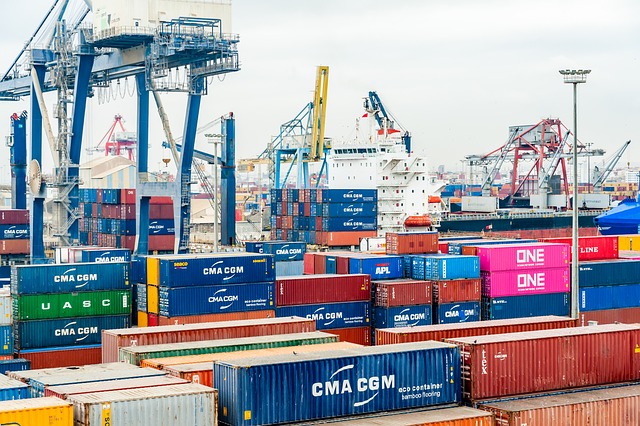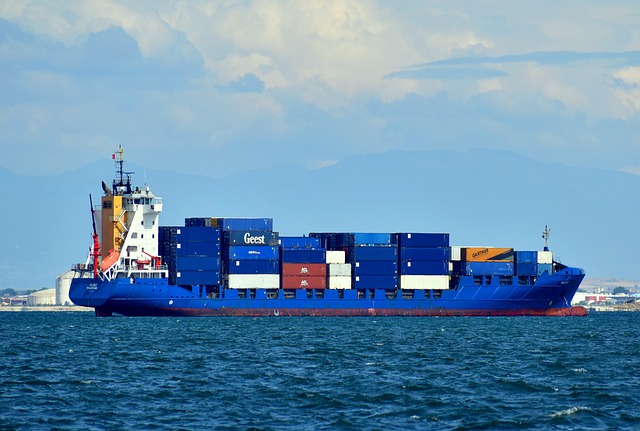Understanding and adhering to UK customs regulations is vital for businesses engaging in international trade, as it ensures smooth operations, fair competition, consumer protection, and funding for public services. Compliance involves identifying dutiable goods, accurate declaration, and providing essential documents like invoices, packing lists, and certificates of origin to HMRC. These regulations change frequently, especially post-Brexit, so staying informed is crucial to avoid penalties. UK translation services are essential for customs documents, ensuring accuracy, meeting language requirements, and facilitating smooth international trade. Accurate documentation, including detailed information and proper HS codes, is key to avoiding delays, fines, or legal issues. Utilizing professional customs brokers and translation services can significantly navigate the complex regulations and ensure compliance. In today's digital era, digitalization and specialized translation support streamline customs processes, enhancing global trade within the UK. Non-compliance carries severe penalties, so investing in reliable translation services is essential for businesses to meet UK customs standards and foster a robust trading environment.
“Navigating the intricate world of UK customs regulations is paramount for seamless international trade. This comprehensive guide aims to demystify the process, ensuring businesses stay compliant and avoid delays. From understanding key regulations to the vital role of correct documentation, we explore essential aspects like import/export requirements, customs declarations, and the importance of accurate data.
Discover the benefits of partnering with a reliable customs broker, overcoming language barriers with UK translation services, and learning from common mistakes. Embrace digitalization for streamlined processes, ensuring your goods clear customs efficiently.”
- Understanding UK Customs Regulations: An Overview
- The Role of Correct Documentation in International Trade
- Import and Export Requirements for Goods Entering the UK
- Customs Declarations: What You Need to Include
- Choosing the Right Customs Broker or Agent
- Language Barriers and the Importance of Translation Services
- Ensuring Accuracy in Documents: Avoiding Delays and Fines
- Common Mistakes to Avoid During Customs Clearance
- Digitalization and Streamlining Customs Processes
- Conclusion: Staying Compliant for Seamless Trade
Understanding UK Customs Regulations: An Overview

Understanding UK customs regulations is essential for any business involved in international trade. These rules govern the movement of goods into and out of the country, ensuring fair competition, protecting consumers, and generating revenue for public services. Compliance means understanding what items require duties or taxes, how to accurately declare them, and providing the necessary supporting documents. This includes customs and trade documents, such as invoices, packing lists, and certificates of origin, which must be provided to HM Revenue & Customs (HMRC) upon importation or exportation.
The UK’s customs regulations are subject to change, especially with the country’s recent departure from the European Union. Businesses must stay informed about these updates to avoid penalties and delays. Hiring professionals who offer UK translation services for customs documents can also be beneficial, ensuring accuracy in declarations and compliance with both language and content requirements. This proactive approach helps maintain smooth operations and fosters trust among stakeholders in the complex world of international trade.
The Role of Correct Documentation in International Trade

In international trade, accurate documentation is key to ensuring smooth passage through customs in the UK or any other country. Customs and trade documents play a crucial role in verifying the authenticity and legality of goods being imported or exported. These documents not only facilitate the customs clearance process but also serve as a bridge between different countries’ regulations. Accurate and up-to-date documentation is essential to avoid delays, fines, or even legal complications.
Customs and trade document translation services are vital when conducting business across borders. UK-based companies importing or exporting goods must ensure that all paperwork, including invoices, packing lists, certificates of origin, and customs declarations, is accurate and available in the required languages. Professional translation services help to guarantee that these documents meet legal standards and accurately convey their contents, thereby ensuring compliance with UK customs regulations.
Import and Export Requirements for Goods Entering the UK

When importing or exporting goods into and out of the UK, strict customs and trade document requirements must be adhered to. This includes accurate and detailed documentation such as commercial invoices, packing lists, and certificates of origin. These documents play a crucial role in ensuring compliance with UK customs regulations and facilitating smooth transactions.
Customs authorities carefully inspect these papers to verify the nature and value of goods being moved. Accurate translations may also be required for non-English language documents, underscoring the importance of reliable UK translation services. Failure to provide the right paperwork or incorrect translations can result in delays, fines, or even forfeiture of goods, so it’s vital to understand and meet these obligations.
Customs Declarations: What You Need to Include

When preparing your customs declaration, accuracy is key. You’ll need to provide detailed information about your goods, including their description, value, and country of origin. This ensures smooth clearance through UK customs. A complete declaration includes all relevant customs and trade documents, such as commercial invoices, packing lists, and certificates of origin, which can often be assisted by professional UK translation services for any non-English documentation.
Each item should be accurately described to avoid delays or fines. Use the Harmonised System (HS) codes provided by the European Union to classify your goods correctly. HS codes are essential for identifying the tax rate and import restrictions applicable to your items, ensuring full compliance with UK customs regulations.
Choosing the Right Customs Broker or Agent

When ensuring compliance with UK customs regulations, selecting the right customs broker or agent is a strategic step that can significantly streamline your operations. Look for professionals who possess a deep understanding of both customs procedures and international trade laws. Their expertise will help you navigate complex rules, especially when dealing with customs and trade documents, which require precise handling and accurate translation services to meet UK standards.
A reliable customs broker should offer comprehensive support, from pre-shipment planning to post-clearance follow-ups. They must be adept at managing a range of goods and possess the technology to process data efficiently. With their assistance, you can minimise delays, avoid costly errors, and ensure your shipments comply with all requirements, including any specific documentation needs for UK customs.
Language Barriers and the Importance of Translation Services

In today’s globalized trade landscape, ensuring compliance with UK customs regulations is paramount for businesses operating within or importing into the country. One significant challenge in this process is overcoming language barriers. Customs and trade documents, which are crucial for facilitating cross-border transactions, often require precise and accurate translations to ensure their validity and comprehension. Without professional translation services, businesses risk errors that could lead to delays, fines, or even the rejection of their shipments.
UK translation services play a vital role in navigating these complexities by providing accurate interpretations of customs forms, invoices, certificates of origin, and other critical documentation. These services not only help ensure compliance but also streamline the overall import process. Accurate translations are essential to avoid misunderstandings and legal issues that could arise from incorrect or incomplete information, ultimately facilitating smoother trade and fostering a robust business environment within the UK.
Ensuring Accuracy in Documents: Avoiding Delays and Fines

Ensuring accuracy in customs and trade documents is paramount for smooth compliance with UK regulations. Inaccurate or incomplete paperwork can lead to significant delays at ports and borders, causing disruptions and additional costs for businesses. Professional UK translation services play a vital role here, as they guarantee that all documents are correctly translated and formatted according to the latest legal requirements. This precision prevents costly errors and reduces the risk of fines.
By relying on expert translators, businesses can be confident that their customs declarations, invoices, and other essential paperwork meet the high standards set by UK authorities. These professionals possess a deep understanding of both language and local regulations, ensuring that every detail is accurately conveyed, from product descriptions to valuation data. This meticulous approach not only facilitates faster clearance but also fosters trust between businesses and customs officials.
Common Mistakes to Avoid During Customs Clearance

When navigating customs clearance, businesses often make avoidable mistakes that can cause delays and additional costs. One common oversight is the absence or errors in crucial Customs and Trade Documents (CTDs), such as commercial invoices, packing lists, and declarations. These documents are vital for conveying essential information about imported goods, including their description, value, country of origin, and quantity. Any discrepancies or missing details can lead to inspections and potential penalties.
Another frequent mistake is the incorrect completion of the Declaration in the UK’s Computerised System (CUS). This requires accurate classification of goods using the Harmonised System (HS) codes. Inaccurate coding can result in misclassification, impacting duty rates and duty-free allowances. Additionally, relying solely on in-house expertise without considering professional UK translation services for non-English documents is risky. Misinterpretation or mistranslation of key information can lead to errors in declarations and potential legal issues.
Digitalization and Streamlining Customs Processes

In today’s digital era, the UK customs landscape is undergoing a significant transformation, largely driven by advancements in technology. Digitalization plays a pivotal role in streamlining customs processes, enhancing efficiency, and ensuring compliance with regulations. One of the key benefits is the ability to automate and digitize Customs and Trade Documents (CTDs), eliminating the need for manual paperwork. This shift reduces processing times, minimizes errors, and enhances data accuracy.
UK translation services also contribute to this modernization by offering specialized support in handling multi-lingual documents. With globalization and international trade on the rise, accurate and timely translations are essential to facilitate smooth customs clearance. Digital platforms that integrate translation tools enable faster processing of CTDs, further streamlining the customs experience for businesses operating within the UK and beyond.
Conclusion: Staying Compliant for Seamless Trade

Staying compliant with UK customs regulations is paramount for businesses looking to facilitate seamless trade. Accurate and timely submission of Customs and Trade Documents, often requiring professional UK translation services for non-English languages, is a critical aspect of this process. Non-compliance can result in significant penalties, delays, and reputational damage.
By investing in reliable translation services to ensure all documentation meets UK customs standards, businesses can avoid these pitfalls. This proactive approach not only streamlines the customs clearance process but also fosters trust and transparency with regulatory bodies, ultimately contributing to a robust and efficient trading environment.
Navigating the intricate web of UK customs regulations is paramount for seamless international trade. By understanding the requirements, from correct documentation to accurate declarations, businesses can avoid delays and fines. Utilizing specialized customs brokers and leveraging translation services for language barriers further enhances compliance. Embracing digitalization streamlines processes, ensuring a smooth journey through customs clearance. Remember that adherence to these guidelines is not just beneficial but essential for successful and efficient trade in the UK.



